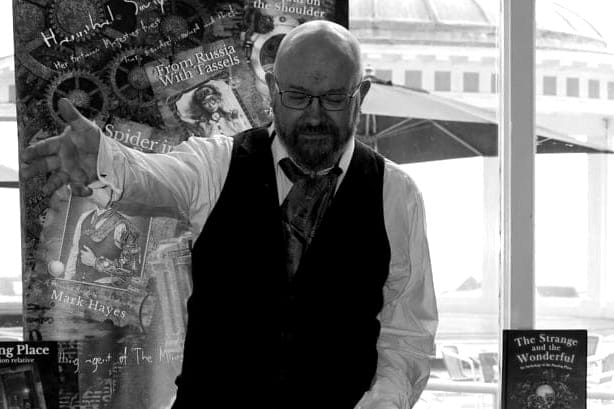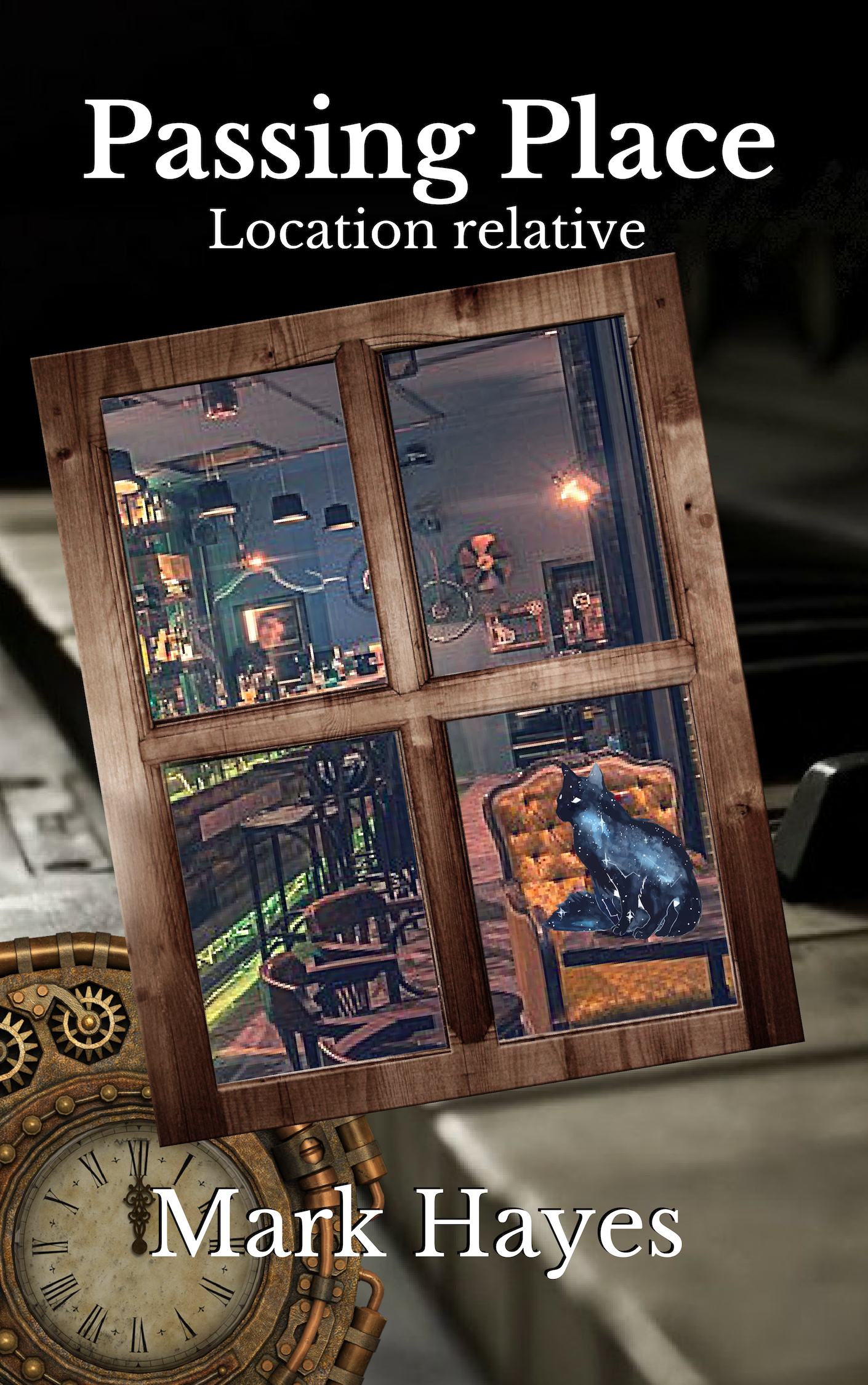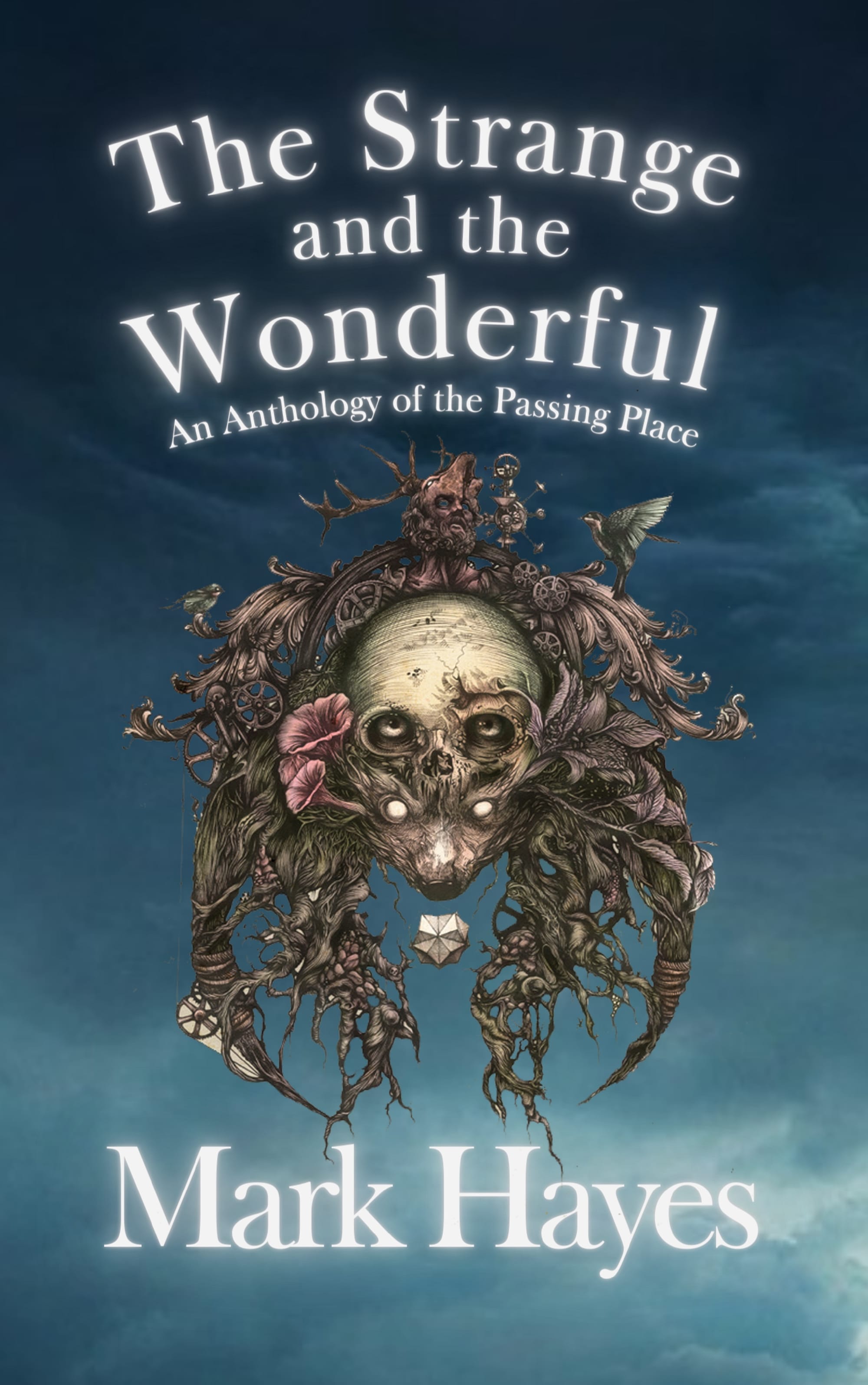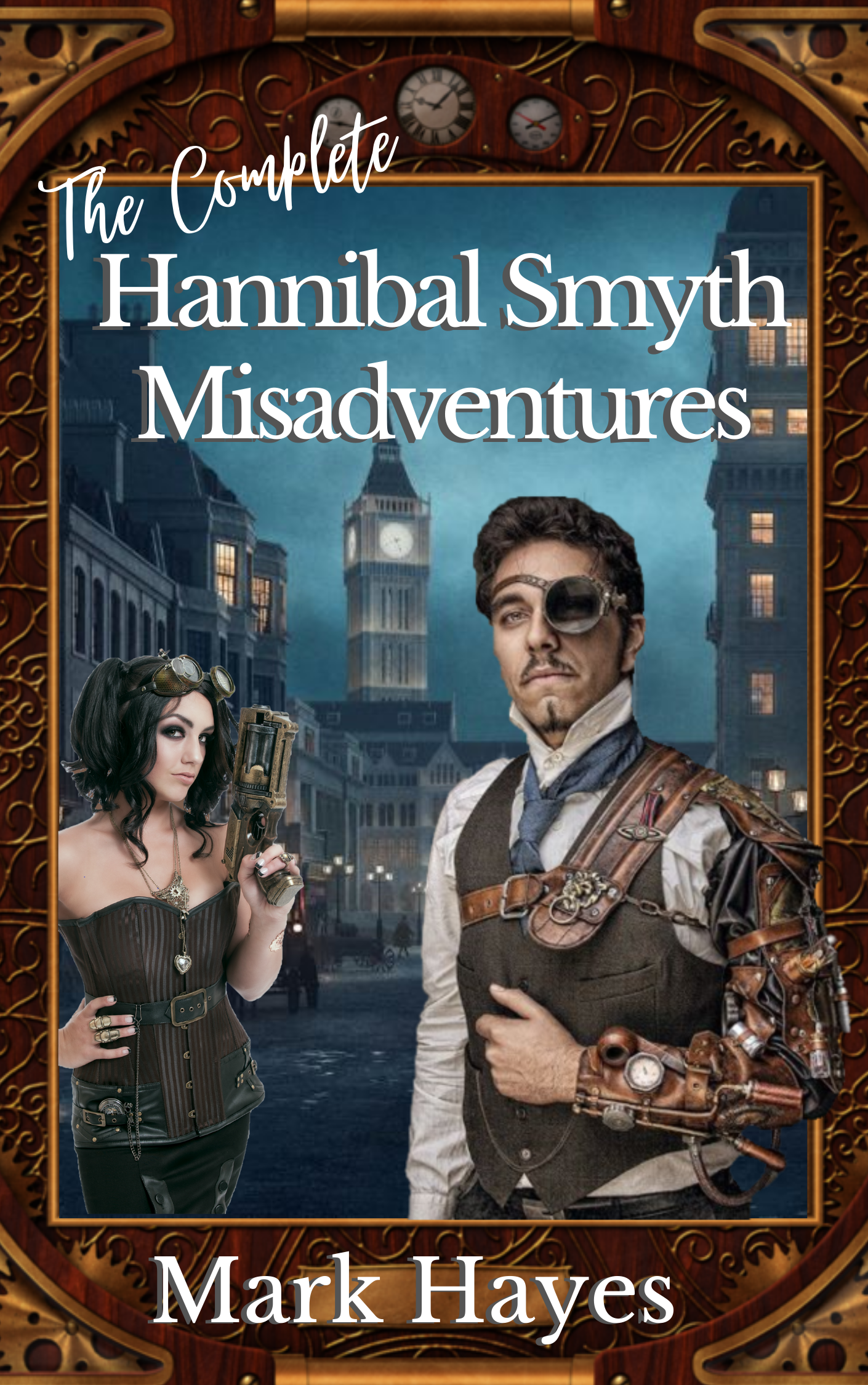"There is much blood on the pages and pain held open to the light."
Author Q&A: we catch up with Harvey regular Mark Hayes to talk books, writing and baring of the soul...

As well as being a renowned and prolific blogger of interesting things (as well as super cool book reviews), Mark Hayes is the author of the Hannibal Smythe Misadventures, the Ballad of Maybe series, and the more literary novels, Passing Place and Cider Lane, as well as the Lexicromicon: a bluffer’s guide to the writings of HP Lovecraft.
He is a Harvey regular and hasn’t missed a volume yet, as well as being one of my secret panel dealing with the Harvey submissions, making decisions in dark, candlelight rooms over a rum or two.
We catch up with Mark as he prepares to finish the final draft of his next book.
Q: We’ve heard rumours your next book is Mandrake! How’s it going? Where did Mandrake appear from? And what have you enjoyed about writing it?
A: Mandrake came about from a short dialog between two unnamed characters that I wrote on the fly several years ago and then forgot about. I write dialogues and monologues on a whim quite often as it’s a good exercise in playing with language and ideas. When I was pitching around for inspiration a couple of years later, I came across it and wondered who was having this strange conversation about a man killed at the hands of cultists he’d ordered to murder him. This led to the narrator of a short story built on that original dialogue as it gave me a sense of character and Mandrake was born. The short story, which first saw light of day in the original Harvey series, and is now in one of my own collections, expanded the idea of a Victorian England where magic is, while not every day, very much a thing. And Mandrake himself, he became Lucifer Mandrake and also for a time Luci Drake, which was not entirely a disguise.
The character of Mandrake and the idea of his world grew in the short story, and so even after it was published, the character and the world kept coming back to me. Eventually I took the bones of the short story and started plotting out a novel, which kept changing as I wrote it and is now as much about Luci and Lucifer and the relationship between these two aspects of the main character as anything else. It is also full of plots, magic, fae, necromancy and lots of other stuff but the bigendered nature of the central character is what makes it interesting to me as a writer. The first draft of the novel is almost complete, which has been about a three year project now.
As to what I have enjoyed about writing it, well I get to read it first…
Q: Got to ask… what’s happening with the sequel to Maybe and when can we expect to see that?
A: Oh dearest Eliza Ma-Ya-Be and Benjamin West. I have around 30k of the sequel written, it has changed several times, and it keeps arguing with me. It is high on the list once Mandrake is finally finished. Currently Benjamin may be hanging out of the loading bay of an air ship in a thunderstorm. About to be rescued by the person he least expects in the world or possibly not… Eliza may or may not be doing something dangerous with a lightening rod. And the good ship ‘Maybe’s Daughter’ may or may not make it to Cuba.
Or I will start over and try to thread my way to the fountain of youth via another direction.
When can you expect to see it, I would hope by winter 2025, but I have been knocked unconscious by deadlines before.
Q: Your steampunk books are quite different to your more serious literary novels… what is it about steampunk that you enjoy writing?
A: Steampunk is a ridiculous thing, and steampunks are ridiculous people. The kind of people who strap a ‘jetpack’ to their back and engage in zero altitude formation display ‘flying’. This is to say, steampunk gives you the license to be ridiculous and to write ridiculous things. This doesn’t make writing them any less hard work, or mean you can just throw words down on a page and see what happens (okay, I do that all the time but never without purpose), but it does mean you can play around with the absurdity that is humanity. Also, I am greatly fond of satire, and steampunk is a wonderful place to play with the satirical.
You can also slide remarkably serious things into a steampunk novel and discus things like poisonous masculinity, depression, madness, love, death or anything in fact, under the guise of ridiculous things in a ridiculous world. It is quite freeing in that regard, as in more ‘serious’ work you have to be less opaque.
Q: Are we going to see Hannibal Smyth again?
A: Certainly, there is a whole three book arc waiting to be written. I just have four other novels to finish first…
Q: And the Lexicromicon… you say that was a book you wrote by accident! What happened and how did it come about? And in a paragraph, what IS your opinion of the writings of HP Lovecraft?
A: Lovecraft was influential after the fact. His legacy is enormous because of his ideas, but there are only around twenty stories worth reading by the casual reader, and everything he wrote is shaded by the man who did the writing. He was a troubled soul, a man born too soon to be who he was, and too late to be who he wanted to be. Some of those stories though… There is a wonder to his work, but mostly in what that work inspired.
Q: If you could time-travel back to any period in history, where and when in the world would you go?
A: One hundred years before the Younger Dryas (about 13,000 years ago in case you’re wondering). I’d like to see the civilization that may have existed then that has been wiped from the collective memory of the human race and is now only remembered in myth.
"The story I am working on is generally the one that excites me at the time."
Q: Is there a novel you’d love to write if you had infinite time available?
A: I believe I am writing it, it’s the one people keep asking for. It involves a girl called Scarlet. Sometimes at least. It may never be written and I don’t believe it matters if it is, only that I am writing it.
Q: Is there going to be a sequel to The Tower?
A: I am not sure it needs one. Right now it is perfect, whereas any sequel would remove the vail of infinite possibility. People wanting to know what the tower is, is exactly why I should not tell them.
Q: If you were going to recommend one of your books to someone, which one would it be and why?
A: Passing Place and that is simply because I really want people to read it. It is the best thing I have ever written and quite possibly ever will. There is much blood on the pages and pain held open to the light. If one knows where to look you could probably find my soul in that book. But mainly, because I really want people to read it.
Q: What short story ideas are you working on for future Harveys, and which basket excites you the most?
A: Currently Medusa’s other sister has retired to Cheem to run an antique store, built on top of a temple to herself. Something only Mr Popadoplis from the Kabab shop next door is aware of. So one would guess that is urban fantasy… The story I am working on is generally the one that excites me at the time.
Q: You are a regular at comic cons and steampunk conventions. What advice would you give any new authors who haven’t yet been out there in person with their books but are thinking they’d like to give it a go?
A: Do so. Try to pick the right event or location. Be aware you may not sell many books. Don’t be afraid to hide behind a prop or three. And if you can do so, go with others. But get out there and talk to readers.
Q: On your blog, you write a lot about mental health and well-being. It’s a big deal to write your heart and soul into a book and then put it out there for a public audience. What advice do you have for writers who may be struggling with self-confidence and the oomph to share their work?
A: Here is a simple thing, no book ever sold until it was published, no reader ever found a book without being told it existed and no book is ever finished.
That last one is important to remember. If it was down to the writer, no book would ever be published because you will never be completely happy with it. At some point you have to just say to yourself, ‘okay, it’s done now’ and let it go out into the world. So once you are beyond the second or third draft, and you have sent it to an editor, set yourself a final date and stick to it. And once you release it, tell the world. You write words because you feel they have value, so value them.
Read Mark's blog here:

THE TOWER
by Mark Hayes
First published in Harvey Duckman Volume 6, December 2020
You never notice the tower at Southbridge when you first see the town.
You never noticed the tower at all, most of the time. It has a way about it. A way that allows it to slip out of sight behind nothing in particular, even when you’re looking straight at it. For reasons that are hard to explain, when you’re looking at it your eyes would inevitably be drawn to something else. Mundane things would strike you as far more interesting than the tower ever could be. Not that it would be something you’d think about. You never really thought about the tower at all which was, I suspect, the point.
Travellers, that rarest of commodities passing through town, would often find themselves bemused should the tower be mentioned by a local in passing. Much as the locals would be equally bemused if a traveller asked about the tower. Generally, they would assume such inquiries were about the inn in Market Square. This was, it must be said, not an unfair assumption. The inn was after all called ‘The Tower’ and had a neatly crafted, painted sign for the benefit of those who couldn’t read, hanging on hinges that squealed as it blew back and forth in even the lightest of breezes. This occasionally wrong assumption was seldom pointed out by anyone. After all, someone mentioning ‘the tower in the market square’, was likely as not referencing the inn, not the two-hundred-foot-high, slender, wand-like tower that dwarfed every other building in the town and had an evening shadow which should’ve fallen across the whole square.
Well, at least, it would’ve done if the tower actually cast a shadow, but as the local explanation goes ‘it chooses not to’...
Read the full story on Harvey Duckman Is Alive!







